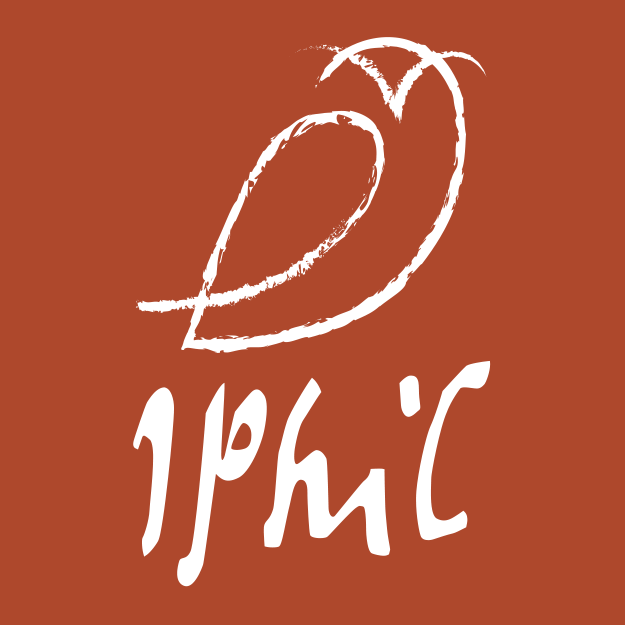Aktuelle Projekte
-
GenCamp25 – Generationengerechtigkeit und kommunale ProjektarbeitDas vom BMBF als DATIpilot-Innovationssprint geförderte Projekt GenCamp25 arbeitet an der Entwicklung eines digitalen GenerationenCampus. Als Wissensspeicher unterstützt der Campus kommunale Projekte im Bereich der Generationenarbeit. Theoretisch steht die Frage im Mittelpunkt, wie Erkenntnisse aus dem Bereich der politischen Philosophie und der Gerechtigkeitstheorie mit Gewinn in kommunale Praxiskontexte eingebracht werden und die Projektarbeit bereichern können. Das Projekt ist eine Kooperation des Instituts für Philosophie der LUH mit dem Verein BildungsCent e. V., Berlin.Leitung: Dr. Johannes Müller-SaloJahr: 2024Förderung: BMBF, DATIpilot InnovationssprintLaufzeit: 2024-2026
-
SOCRATES – Social Credibility and Trustworthiness of Expert Knowledge and Science-Based InformationSOCRATES ist eine durch die Deutsche Forschungsgemeinschaft (DFG) geförderte Kollegforschungsgruppe (KFG43; Förderzeitraum 2023-2027), die sich mit wissenschaftlicher Glaubwürdigkeit und Vertrauen in die Wissenschaft beschäftigt. Sprecher des Zentrums sind Prof. Dr. Mathias Frisch und Prof. Dr. Torsten Wilholt.Leitung: Prof. Dr. Mathias Frisch, Prof. Dr. Torsten WilholtTeam:Jahr: 2023Förderung: Deutsche ForschungsgemeinschaftLaufzeit: 01.10.2023-30.09.2027
-
MODEL TRANSFER – Model Transfer and its Challenges in Science: The Case of Economics‘Model Transfer and its Challenges in Science: The Case of Economics’ is an ERC-funded project that develops and applies conceptual and computational tools to study how scientific models are transferred across disciplinary domains. Model transfers between economics and other social, natural, and formal sciences will serve as exemplary case studies. The project is led by Prof. Dr. Catherine Herfeld. Team members include Dr. Edoardo Peruzzi and Murat Bakeev.Leitung: Prof. Dr. Catherine HerfeldTeam:Jahr: 2023Förderung: European Research Council (ERC) Starting GrantLaufzeit: 04.2023-03.2028
-
A Philosophical Approach to Biasing Mechanisms in Scientific ResearchDieses DFG-geförderte Projekt wird von Prof. Dr. Torsten Wilholt in Kooperation mit Prof. Dr. Manuela Fernández Pinto vom Centre for Applied Ethics der Universidad de los Andes (Bogotá, Kolumbien) durchgeführt.Leitung: Prof. Dr. Torsten Wilholt, Prof. Dr. Manuela Fernández PintoTeam:Jahr: 2022Förderung: Deutsche ForschungsgemeinschaftLaufzeit: 2022-2025
Abgeschlossene Projekte
-
DFG-Graduiertenkolleg 2073Seit Herbst 2015 betreibt das Institut für Philosophie der Leibniz Universität Hannover, gemeinsam mit der Abteilung Philosophie der Universität Bielefeld, das DFG-Graduiertenkolleg „Integrating Ethics and Epistemology of Scientific Research – Die Integration von theoretischer und praktischer Wissenschaftsphilosophie“.Leitung: Prof. Dr. Torsten WilholtTeam:Jahr: 2015Förderung: Deutsche ForschungsgemeinschaftLaufzeit: 01.10.2015–30.09.2024
![Logo des GRK2073]()
![Logo des GRK2073]()
-
BIASDas Forschungsvorhaben „Bias and Discrimination in Big Data and Algorithmic Processing. Philosophical Assessments, Legal Dimensions, and Technological Solutions - BIAS“, welches 2018 unter der Leitung von Prof. Dr. Dietmar Hübner beantragt wurde, wird von der VolkswagenStiftung gefördert.Leitung: Prof. Dr. Dietmar Hübner; Prof. Dr. Uljana Feest; Prof. Dr. Mathias FrischTeam:Jahr: 2019Förderung: VolkswagenStiftungLaufzeit: 2019-2023
-
Machine Discovery and Creation (MDAC)The MDAC (Machine Discovery and Creation) project focuses on philosophical, epistemological and ethical questions raised by artificial intelligence (AI) in two areas: in science, AI is now used for a variety of knowledge-generating tasks, such as predicting protein structures for developing new vaccines or restoring ancient inscriptions and making inferences about past societies. And in creative spaces, generative AI is increasingly used to produce novel and convincing text and imagery for a variety of artistic and commercial purposes. MDAC seeks to make philosophical contributions to and facilitate interdisciplinary discussion of a range of novel epistemological, ethical and legal questions raised by these developments, such as: can machines be creators and discoverers in their own right? What attributes and virtues, e.g. imagination, autonomy or humility, do AI systems require to make significant contributions to artistic and scientific pursuits? Can generative AI used in science produce evidence, on par with material evidence or expert judgment, or can it merely produce hypotheses we might seek evidence for?Leitung: Dr. Donal Khosrowi; Dr. Finola FinnTeam:Jahr: 2023Förderung: LUH Flexible Funds
-
Digital Contact Tracing, Privacy, and Discrimination: On the Ethics of Fighting CoronaIm Zuge der COVID-19 Pandemie wurden Maßnahmen wie Kontakt- und Ausgangssperren, Versammlungsverbote und die digitale Kontaktverfolgung erwogen oder durchgeführt, die in liberalen Demokratien normalerweise undenkbar wären. Ziel dieses von der VolkswagenStiftung geförderten Projektes ist es, zu untersuchen, wie eine ethisch gerechtfertigte Pandemiebekämpfung aussieht. Dabei legen wir ein besonderes Augenmerk auf verschiedene Möglichkeiten der digitalen Kontaktverfolgung und auf die Frage, wie deren Beitrag zur Eindämmung der Pandemie gegen mögliche Verletzungen des Datenschutzes abgewogen werden sollten.Leitung: Prof. Dr. Mathias FrischTeam:Jahr: 2021Förderung: VolkswagenStiftungLaufzeit: 2021-2022
-
Scientific Experts and the Pressures of Pandemic Policy AdviceThis project analyses how scientific expertise and trust can be generated under conditions of deep uncertainty and urgency, as illustrated by the current phase of the Covid-19 pandemic. It aims to develop a set of principles for guiding scientifically informed public debate and policy advice. Pooling the resources of philosophy of public health, philosophy of science, and social epistemology, the project fosters a critically informed public understanding of the science/public-policy interface.Leitung: Mathias FrischTeam:Jahr: 2021Förderung: Volkswagen Foundation
-
Crash Algorithms for Autonomous CarsSeit 2017 bearbeitet das Institut für Philosophie unter der Leitung von Prof. Dr. Dietmar Hübner im Rahmen der Fördermaßnahme DI-4 "Mobiler Mensch" (Masterplan-Forschungslinie MOBILISE) das philosophische Teilprojekt "Crash Algorithms for Autonomous Cars".Leitung: Prof. Dr. Dietmar HübnerTeam:Jahr: 2017Förderung: Wissenschaftsallianz Braunschweig - HannoverLaufzeit: 2017-2020
-
InResIm Jahr 2015 wurde das Forschungsvorhaben „The Independence of Research as a Multilevel Problem: Interdisciplinary and Methodological Challenges“ bewilligt. Die koordinierende Hochschule ist die Unimedizin Mainz. Es ist von der VolkswagenStiftung gefördert und Prof. Dr. Torsten Wilholt vom Institut für Philosophie der Leibniz Universität ist Projektbeteiligter.Leitung: Prof. Dr. Klaus LiebTeam:Jahr: 2015Förderung: VolkswagenStiftungLaufzeit: 2015-31.10.2019 (Projekte der Projektpartner laufen länger)


